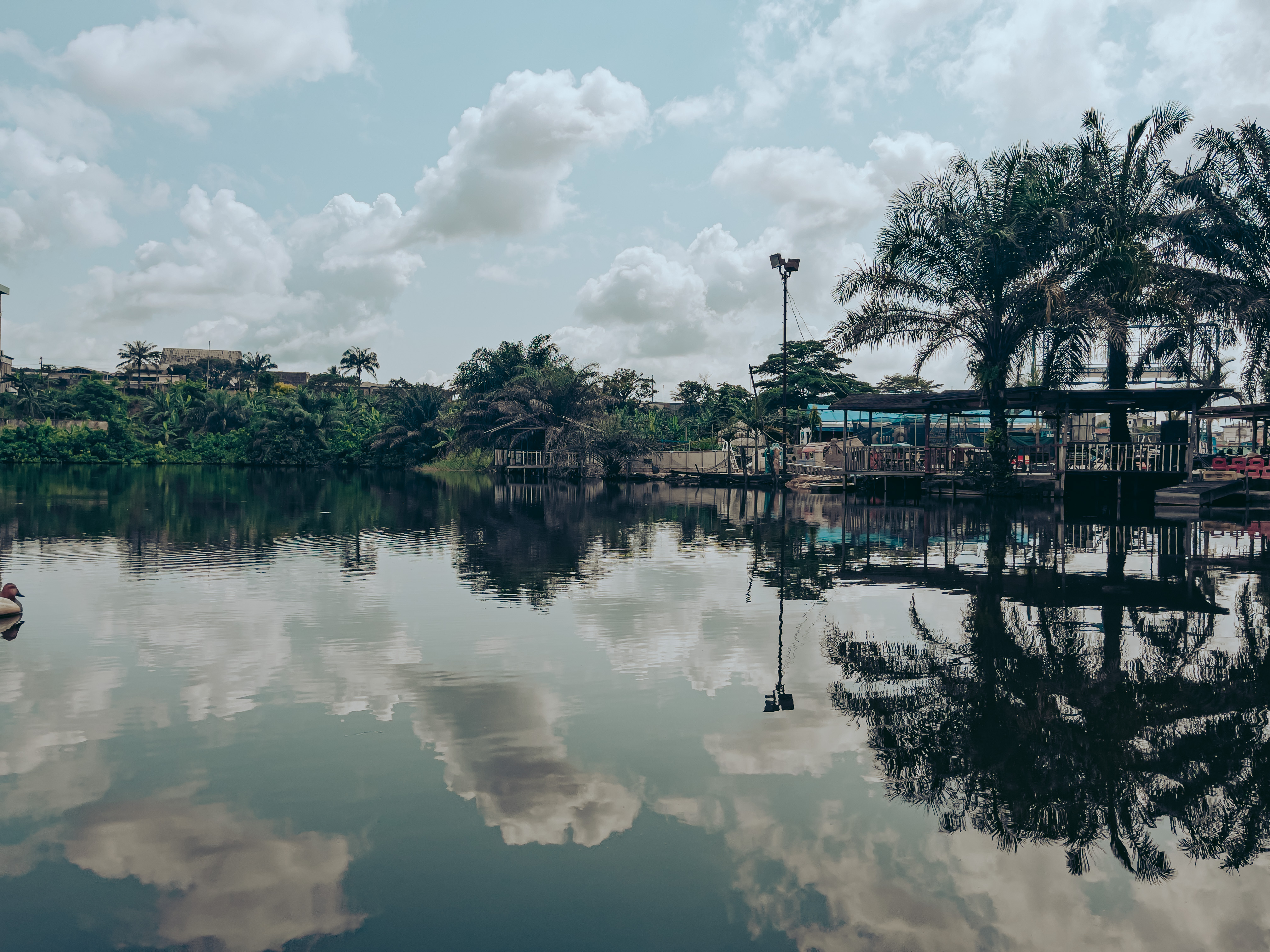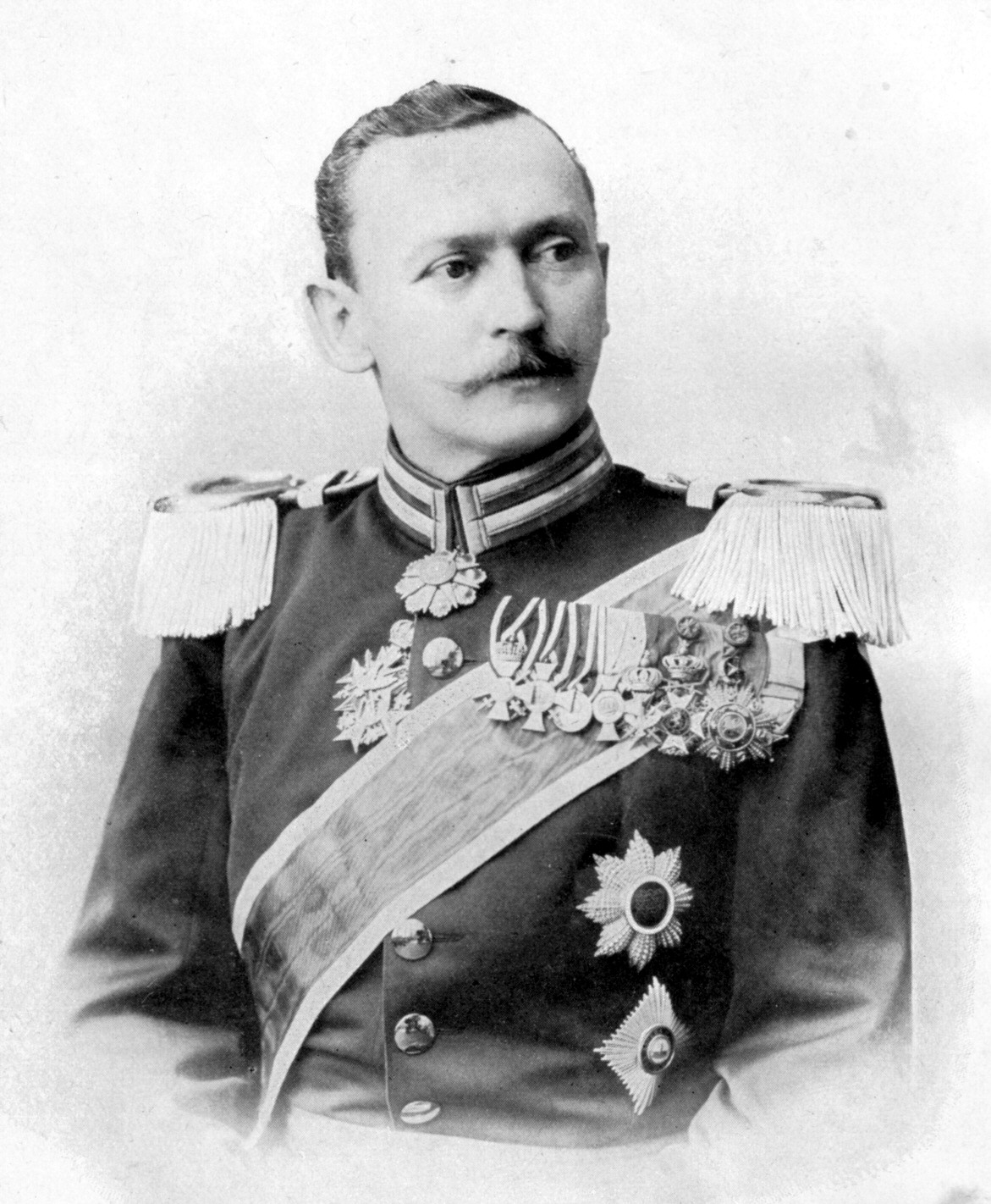|
Bafut Wars
The Bafut Wars were a series of wars fought in the early 20th century between the troops of the Fon of Bafut and German-backed troops of neighbouring fondoms and German troops. The wars ultimately led to a defeat for the Fon of Bafut, forcing him into exile, and making the Fondom of Bafut part of the German protectorate of Kamerun. Timeline 1889: The German explorer Eugene Zintgraff visits the town of Bafut after visiting Bali Nyonga, a neighboring fondom and rival to Bafut. Breaches of etiquette by Eugen Zintgraff with respect to the Fon of Bafut Abumbi I was looked upon as deliberately hostile acts instigated by the Fon of Bali Nyonga. 1891: German-led forces from Bali Nyonga attacked Mankon - an ally of Bafut. The attack was a reprisal of the death of two of Eugene Zintgraff's messengers sent to Bafut to demand ivory. The town of Mankon was burnt down by the force on January 31, 1891. Warriors from Bafut and Mankon attacked the attacking force on their return journe ... [...More Info...] [...Related Items...] OR: [Wikipedia] [Google] [Baidu] |
Fon Of Bafut
The Fon of Bafut is the fon or Mfor (traditional ruler) of the town of Bafut and its adjoining areas in the Northwest Province, Cameroon, which comprise the erstwhile Fondom of Bafut. At present, the Fon of Bafut is still a local ruler, but under the jurisdiction of the Government of Cameroon, and a board of Fons. Bafut is one of the largest villages in the North West Province. Once autocratic, the Fondom of Bafut was turned into a part of the German protectorate of Cameroon (''Kamerun Schutzgebiet'') due to increasing tension, military conflict, and finally defeat at the hands of the Germans in the Bafut Wars (1901–1907) during the reign of Abumbi I. After World War I, the Fon of Bafut and his people became part of the British protectorate of the Cameroons or ''British Cameroon''. International image The Fon of Bafut is perhaps best remembered due to Gerald Durrell's humorous portrayal of the Fon Achirimbi II in his books describing animal-collecting missions to Bafut in ... [...More Info...] [...Related Items...] OR: [Wikipedia] [Google] [Baidu] |
Mankon
Mankon (historically spelled ''Mankong'') is a geo-historic community constituting a large part of Bamenda in Cameroon, formed as an amalgamation of about five different ethnic groups. The (kingdom) represents one of the oldest monarchies of the grassfield people of the Northwest Province. The is ruled by a (king) with rights to kinghood acquired by birth. The crowned is usually a designated son of the deceased king, a child who was born only during his reign. Colonial history In the late 19th century, the Mankon people fought against German colonial forces, in a conflict that became known as the Battle of Mankon. German colonial forces, allied with the Bali people, were led by Eugen Zintgraff and severely outnumbered the Mankon. The first two conflicts saw the German and Bali force, armed with guns and cannons, defeated at the hands of the spear- and machete-toting Mankon warriors. Some of Zintgraff's men had to flee on foot to as far as Babungo. But the Mankon people we ... [...More Info...] [...Related Items...] OR: [Wikipedia] [Google] [Baidu] |
Douala
Douala is the largest city in Cameroon and its economic capital. It is also the capital of Cameroon's Littoral Region. Home to Central Africa's largest port and its major international airport, Douala International Airport (DLA), it is the commercial and economic capital of Cameroon and the entire CEMAC region comprising Gabon, Congo, Chad, Equatorial Guinea, Central African Republic and Cameroon. Consequently, it handles most of the country's major exports, such as oil, cocoa and coffee, timber, metals and fruits. , the city and its surrounding area had an estimated population of 5,768,400. The city sits on the estuary of Wouri River and its climate is tropical. History The first Europeans to visit the area were the Portuguese in about 1472. At the time, the estuary of Wouri River was known as the Rio dos Camarões (Shrimp River). By 1650, it had become the site of a town formed by immigrants, said to have arrived from Congo, who spoke the Duala language. During the 18th ... [...More Info...] [...Related Items...] OR: [Wikipedia] [Google] [Baidu] |
Von Pavel
The term ''von'' () is used in German language surnames either as a nobiliary particle indicating a noble patrilineality, or as a simple preposition used by commoners that means ''of'' or ''from''. Nobility directories like the ''Almanach de Gotha'' often abbreviate the noble term ''von'' to ''v.'' In medieval or early modern names, the ''von'' particle was at times added to commoners' names; thus, ''Hans von Duisburg'' meant "Hans from he city ofDuisburg". This meaning is preserved in Swiss toponymic surnames and in the Dutch or Afrikaans '' van'', which is a cognate of ''von'' but does not indicate nobility. Usage Germany and Austria The abolition of the monarchies in Germany and Austria in 1919 meant that neither state has a privileged nobility, and both have exclusively republican governments. In Germany, this means that legally ''von'' simply became an ordinary part of the surnames of the people who used it. There are no longer any legal privileges or constraint ... [...More Info...] [...Related Items...] OR: [Wikipedia] [Google] [Baidu] |
Schutztruppe
(, Protection Force) was the official name of the colonial troops in the African territories of the German colonial empire from the late 19th century to 1918. Similar to other colonial armies, the consisted of volunteer European commissioned and non-commissioned officers, medical and veterinary officers. Most enlisted ranks were recruited from indigenous communities within the German colonies or from elsewhere in Africa. Military contingents were formed in German East Africa, where they became famous as , in the Kamerun colony of German West Africa, and in German South West Africa. Control of the German colonies of New Guinea, in Samoa, and in Togoland was performed by small local police detachments. Kiautschou in China under Imperial Navy administration was a notable exception. As part of the East Asian Station the navy garrisoned Tsingtao with the marines of III, the only all-German unit with permanent status in an overseas protectorate. Deployment The name of the Germ ... [...More Info...] [...Related Items...] OR: [Wikipedia] [Google] [Baidu] |
Fon Of Bali Nyonga
Fon may refer to: Terms * Fon (title), a traditional title for a ruler in Cameroon * Fiber-optic network * Freedom of navigation * The chemistry mnemonic " FON", used for determining which elements hydrogen forms hydrogen bonds with. * Fon language, spoken by the Fon people * Funding Opportunity Number, assigned by United States federal agencies to available grants Organizations * Fon (company), a Wi-Fi provider * Federation of Ontario Naturalists, now Ontario Nature, a Canadian environmental organization * FON University, university in Macedonia * University of Belgrade Faculty of Organizational Sciences, faculty in Serbia * Fundusz Obrony Narodowej, or Fund for National Defense, a collection attempt in Poland prior to World War II * Sprint Corporation People * Fon people, a major West African ethnic and linguistic group * Bryn Fôn Bryn Fôn (born 27 August 1954) is a Welsh actor and singer-songwriter. He also became the first ever artist to play live on BBC Radio Cym ... [...More Info...] [...Related Items...] OR: [Wikipedia] [Google] [Baidu] |
Germany
Germany,, officially the Federal Republic of Germany, is a country in Central Europe. It is the second most populous country in Europe after Russia, and the most populous member state of the European Union. Germany is situated between the Baltic and North seas to the north, and the Alps to the south; it covers an area of , with a population of almost 84 million within its 16 constituent states. Germany borders Denmark to the north, Poland and the Czech Republic to the east, Austria and Switzerland to the south, and France, Luxembourg, Belgium, and the Netherlands to the west. The nation's capital and most populous city is Berlin and its financial centre is Frankfurt; the largest urban area is the Ruhr. Various Germanic tribes have inhabited the northern parts of modern Germany since classical antiquity. A region named Germania was documented before AD 100. In 962, the Kingdom of Germany formed the bulk of the Holy Roman Empire. During the 16th ce ... [...More Info...] [...Related Items...] OR: [Wikipedia] [Google] [Baidu] |



